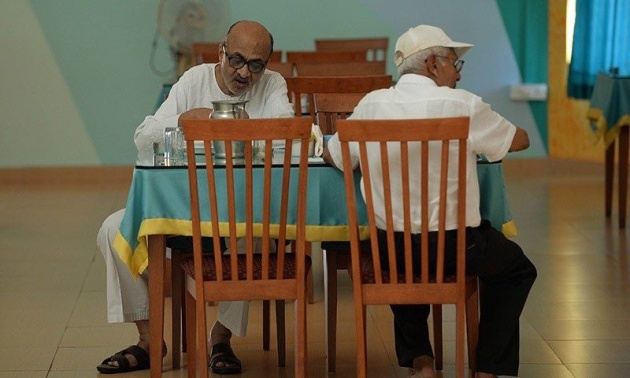
NERAL: When Usha Mantri brushed off frowning traditionalists and moved into a retirement village, she became a pioneer for a generation of Indians who are increasingly breaking the custom of multi-generational households.
She is now happily settled in the peaceful retreat by India's western mountains, which has an on-site Hindu temple and offers ayurvedic massage - and is a two-hour drive from her son in Mumbai.
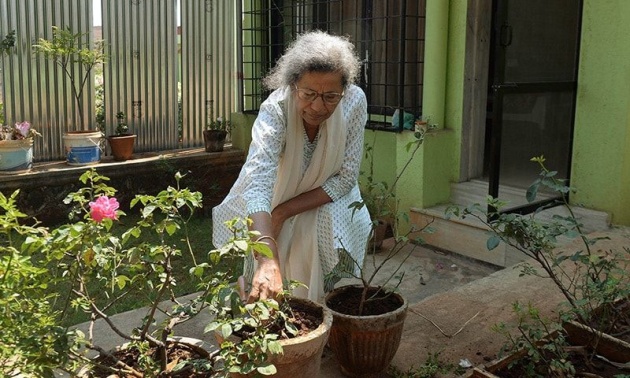
In this photograph taken on March 10, 2015, elderly Indian citizen Usha Mantri works in a garden outside her home as she speaks with AFP at The Dignity Foundation Township in Neral some 50kms east of Mumbai in the western Indian state of Maharashtra.
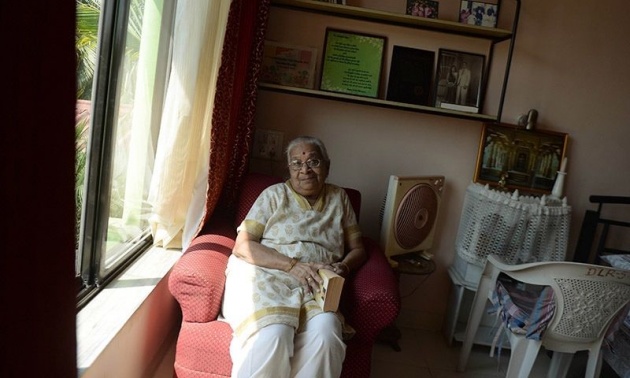 In this photograph taken on March 10, 2015, elderly Indian citizen Hemlata Parikh poses in her home during an interview with AFP at The Dignity Foundation Township in Neral some 50kms east of Mumbai in the western Indian state of Maharashtra.
In this photograph taken on March 10, 2015, elderly Indian citizen Hemlata Parikh poses in her home during an interview with AFP at The Dignity Foundation Township in Neral some 50kms east of Mumbai in the western Indian state of Maharashtra.
This growing “dependency ratio”, along with better purchasing power among the elderly, are among the factors said to be fuelling the demand for senior housing.
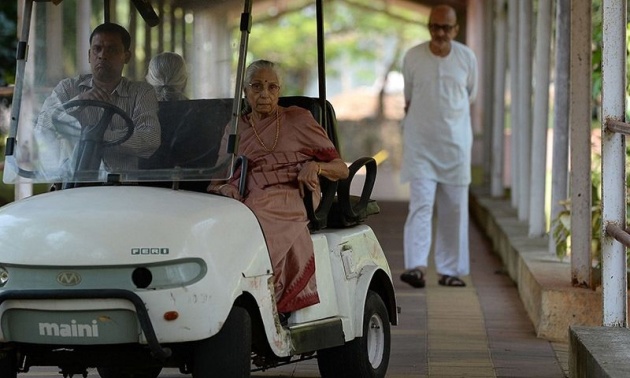 In this photograph taken on March 10, 2015, an attendant uses a cart to transport a physically challenged elderly Indian citizen to the dining hall at The Dignity Foundation Township in Neral some 50kms east of Mumbai in the western Indian state of Maharashtra.
In this photograph taken on March 10, 2015, an attendant uses a cart to transport a physically challenged elderly Indian citizen to the dining hall at The Dignity Foundation Township in Neral some 50kms east of Mumbai in the western Indian state of Maharashtra.
Manish Kumar, a strategic consultant with real estate company Jones Lang LaSalle India, said the current annual demand for such projects was estimated to be at 312,00 units, but only 10,000 to 15,000 units of new supply are being planned.
Focus on the middle
Perhaps surprisingly, only one of the projects so far, Antara Senior Living near the Himalayas, is targeting the very top end of the Indian market, with most developers focused on the middle and upper middle-class.
“If a rich man sends his father to a senior citizens' home, he will be looked down upon,” explained Gopal Srinivasan, a trustee at Dignity Lifestyle.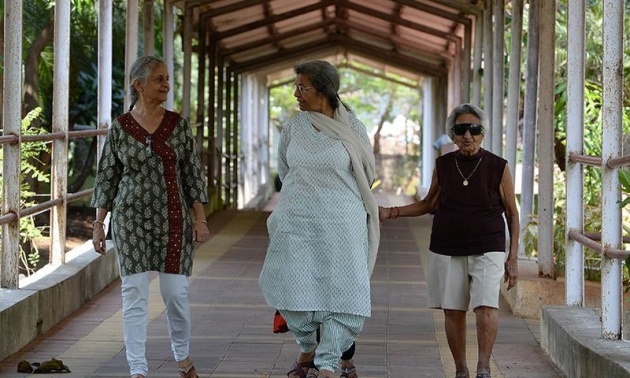 In this photograph taken on March 10, 2015, elderly Indian citizens arrive at the dining hall at The Dignity Foundation Township in Neral some 50kms east of Mumbai in the western Indian state of Maharashtra.
In this photograph taken on March 10, 2015, elderly Indian citizens arrive at the dining hall at The Dignity Foundation Township in Neral some 50kms east of Mumbai in the western Indian state of Maharashtra.
Therefore the very rich keep their parents in their house, have a 24-7 nurse, have a doctor coming in every day, but they won't admit their parents to senior citizens' houses,” he said.
At the other end of the scale are the many who cannot afford such care.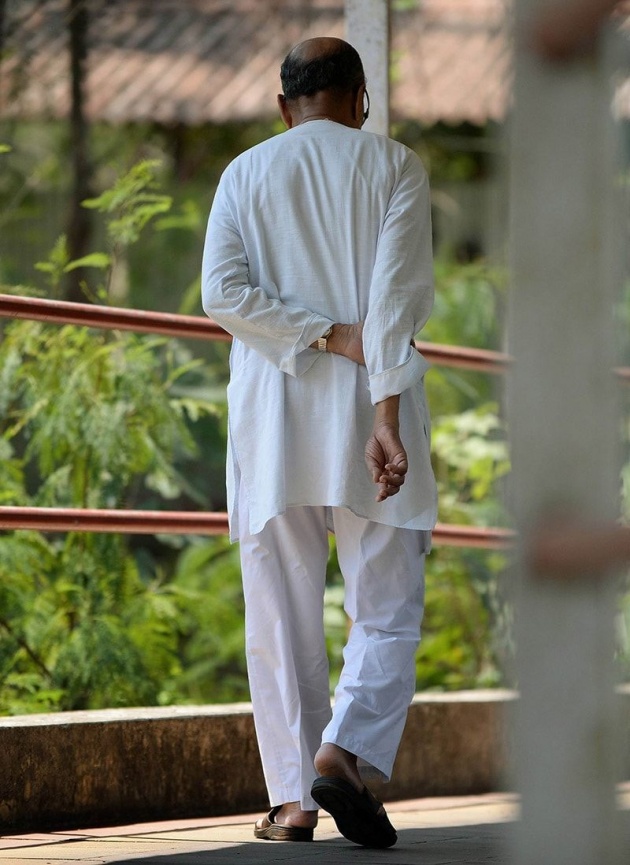 In this photograph taken on March 10, 2015, an elderly Indian citizen walks to the dining hall at The Dignity Foundation Township in Neral some 50kms east of Mumbai in the western Indian state of Maharashtra.
In this photograph taken on March 10, 2015, an elderly Indian citizen walks to the dining hall at The Dignity Foundation Township in Neral some 50kms east of Mumbai in the western Indian state of Maharashtra.
The government offers regular social security payments only to those below the poverty line, a minority of India's elderly, and even then the benefits are difficult to access, Borgaonkar said.
“Society is changing fast, and because of this joint family system which is breaking, these elderly are again isolated, they are neglected,” he said, calling for government policies to support the elderly as demographics swiftly change.
“Are we ready to take up this challenge? Today we have to think on that



